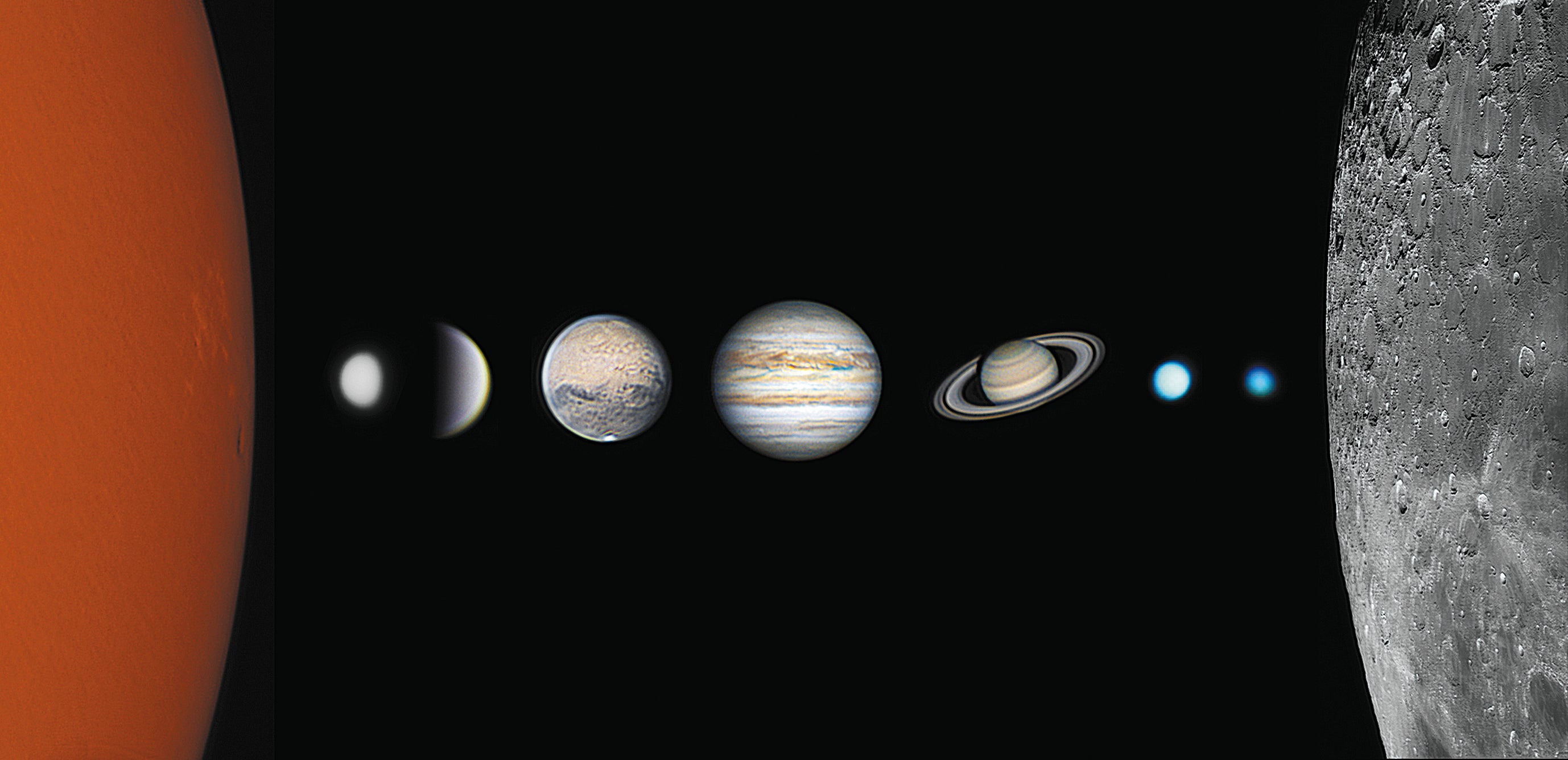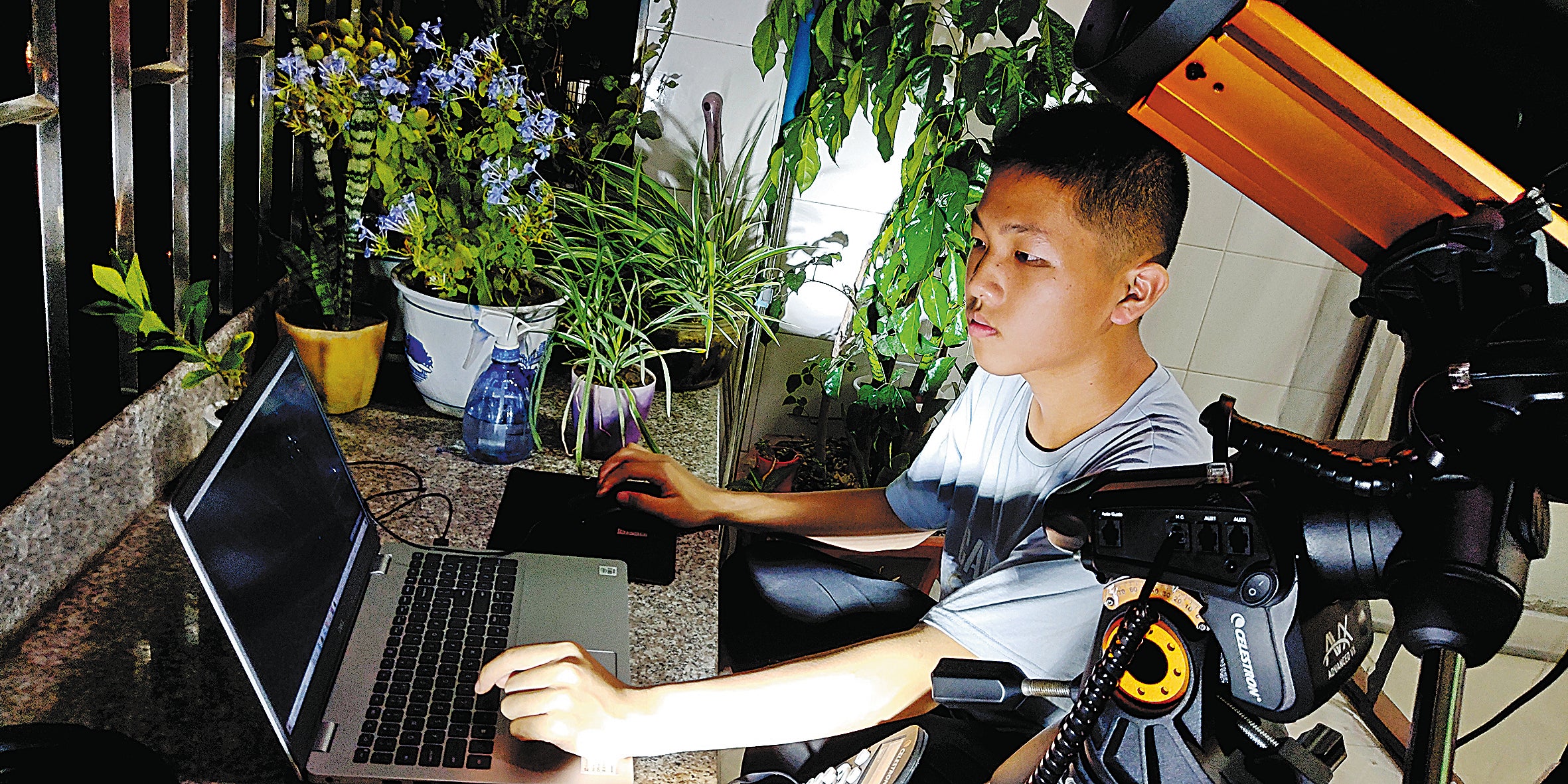Eyes on the stars
THE ARTICLES ON THESE PAGES ARE PRODUCED BY CHINA DAILY, WHICH TAKES SOLE RESPONSIBILITY FOR THE CONTENTS

Wang Zhipu, 16, begins his voyage into space after class. Mounting a telescope on the balcony at home, the high-school sophomore observes the skies, taking photos.
The student at Yongtai No 1 High School in Yongtai county in Fuzhou, Fujian province, taught himself astrophotography by reading books and by searching online.
Recently, his efforts were rewarded when he won the title of Young Astronomy Photographer of the Year 2021 in the Royal Observatory Greenwich’s annual astrophotography contest. His winning entry, entitled Family Photo of the Solar System, shows seven of the eight planets lined up horizontally, with the sun on the left and moon on the right, both pictured larger in size than normal.
The event, jointly organised by the Royal Observatory Greenwich and the BBC’s Sky at Night magazine, is the world’s biggest astrophotography competition. This year it attracted more than 4,500 entries from 75 countries. Wang’s photo took first prize in the Young Competition category, an award for photographers aged 15 and under. Wang entered the competition in February. At the time, he was not yet 16.
“I saw photos taken by other photographers in the Young Competition category, and some looked similar to mine, so I thought, why not try?” he said.
Following the online awards ceremony in September, some of the shortlisted and prizewinning photos have been put on display at the National Maritime Museum, which is part of the Royal Museums Greenwich in London.
Wang worked on the photo for some time. During last year’s summer vacation, he took photos of Saturn, Venus and Jupiter. Last October, he shot the moon, the Sun, Uranus and Neptune and earlier this year, he tried three times to take a satisfactory shot of Mercury.

He selected one photo of each planet from the numerous ones he’d taken, and then created a single, composite image using computer software. Busy with his studies, Wang made use of every spare moment, getting up at dawn, sleeping early to wake up at midnight, and even taking time off from evening classes when necessary.
His passion touched the jury. One of the judges, astronomer and Education, Outreach and Diversity Officer at the Royal Astronomical Society, Sheila Kanani, said: “As a planetary scientist, I applaud the work that has gone into creating this photo. I really like the composition with the moon on the right-hand side, too.”
Wang developed an interest in astronomy after reading about the subject as a child. He discovered what he could on the internet and learned from other amateur astronomers. During his second year at middle school, he felt he had to do something with his interest. “I wanted to see the universe with my own eyes and record it with my hands. Until I could do that, I was always anxious,” he said.
He used a second-hand Celestron 80DX telescope, made in the United States, that his parents had given him. “The first time I used it, I saw the moon. It was spectacular. I was thrilled!” he said, adding that his obsession began right then.
Sometimes, he would be so immersed in his observations that he wouldn’t go downstairs to fetch a coat, even in the middle of winter. Other times, he stood for hours under the blazing sun to get the perfect shot. But for Wang, none of that mattered.
His parents didn’t know until after he’d won. In addition to the prestige, Wang’s biggest bonus is the £1,500 prize money, which will allow him to buy a new camera. “I will keep on. Astronomy will be a lifelong hobby. It would be great if I could help popularise science in the future, or become an astronomy teacher,” he said.
Previously published on Chinadaily.com.cn
